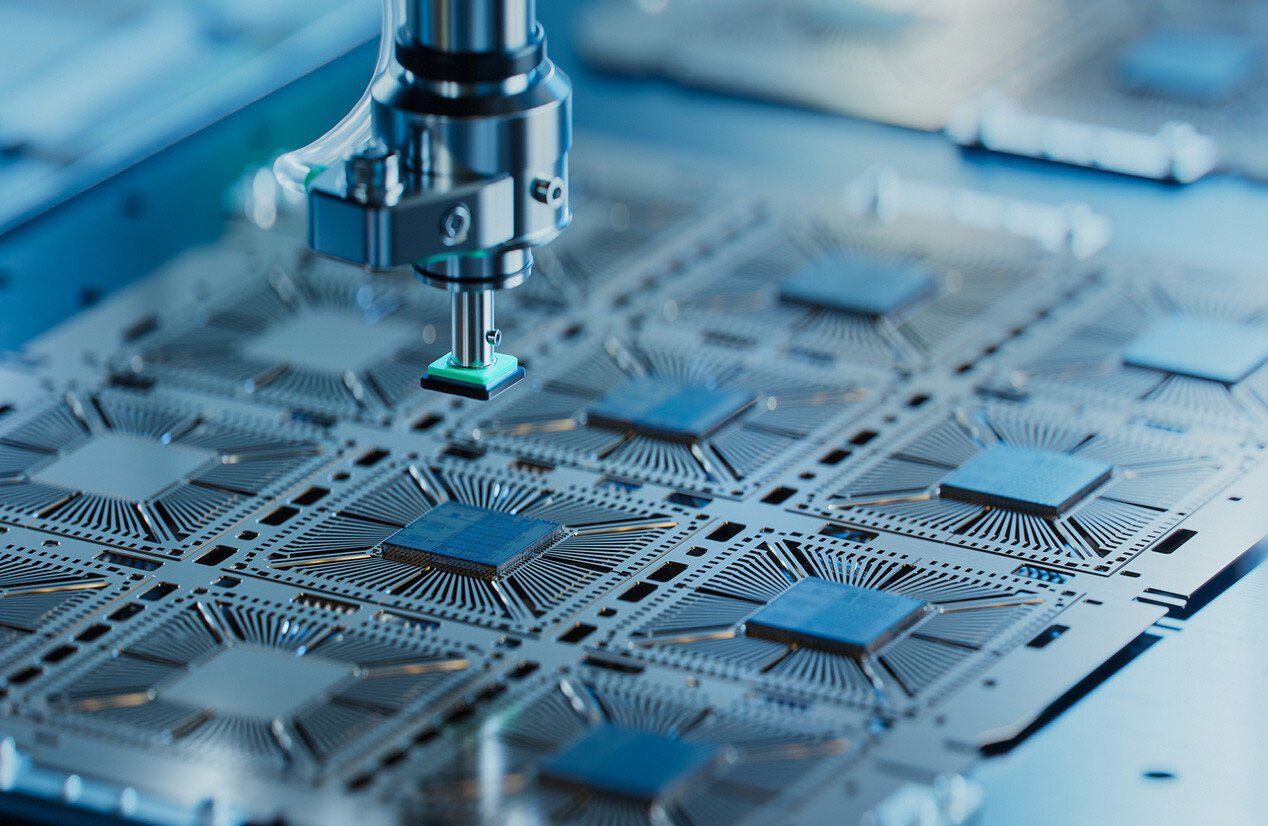Who is this program for?
This credential in Foundations of Semiconductor Technology provides a thorough introduction to the essential concepts and practices in the field. The program begins with an exploration of semiconductor physics and devices, followed by an examination of fabrication processes. Learners will learn about cleanroom and lab protocols, as well as CAD tools for integrated circuit (IC) design. The curriculum includes a study of semiconductor materials and device characterization. Additionally, it covers the mathematics essential for understanding semiconductors and discusses microelectronics and circuit theory. This program equips participants with the foundational knowledge needed to excel in semiconductor technology.
At the end of this credential, you will be able to:

- Analyze the crystal growth techniques such as Czochralski process, Bridgman process.
- Explain BJT, MOSFET, CMOS, FINFET.
- Describe the fundamentals of photolithography and its role in semiconductor fabrication.
- Explain photoresists and their properties.
- Explain how cleanrooms contribute to product quality and yield in semiconductor fabrication processes.
- Identify cleanroom classifications according to ISO standards.
- Identify the key components that constitute an IC.
- Discuss CAD Tool Categories and Functions.
- Define and differentiate between intrinsic and extrinsic semiconductors.
- Describe various types of semiconductor materials.
- Use DLCP to investigate the distribution of defects and impurities in semiconductors.
- Analyze current-voltage (I-V) characteristics to evaluate the electrical behavior and performance of semiconductor devices.
- Discuss combinational logic circuits and their classification.
- Analyze timing and signal propagation.
- Examine IC design and technology.
- Review passive components and active components
Representative Job Titles
-
Facilities Maintenance Technician
-
Technician
-
Preventative Maintenance (PM) Technician
-
Technical Specialist
-
Semiconductor Design Engineer
-
Semiconductor Reliability Engineer
-
Semiconductor Field Service Engineer
-
Smart Factory Automation Specialists
Why Choose a Career in Semiconductor Manufacturing?
The Importance of Semiconductors
Course Overview
There is a massive shortage of technical workers in the U.S who know how to install and operate specialized equipment in a semiconductor-grade facility. Skills of electricians, pipefitters and welders; technical engineers, maintenance personnel and smart factory automation specialists; and graduate electrical engineers to design chips and the tools and manufacturing processes that make the chips are in high demand.
Semiconductor chip companies consider expediting hiring diverse skills for both building and automating their manufacturing facilities and designing chips and tools.
Production and engineering jobs make up more than half of the domestic semiconductor workforce, but the industry also employs workers in management, business and financial operations, mathematics, sales, administrative support, maintenance, transportation, and more.
This credential covers the topics of:
- Module 1: Semiconductor Physics and Devices
- Module 2: Fabrication Processes
- Module 3: Cleanroom and Lab Protocols
- Module 4: CAD Tools for IC Design
- Module 5: Semiconductor Materials
- Module 6: Device Characterization
- Module 7: Mathematics for Semiconductors
- Module 8: Microelectronics and Circuit Theory
This credential includes videos, quizzes, simulations, and case studies with the goal of providing students with a strong overview of semiconductor industry.
This program will equip learners with the following work competencies:
- Basic understanding of semiconductor device physics.
- Utilize software tools in semiconductor fabrication.
- Implement cleanroom best practices and protocol.
- Understand the use of CAD tools in semiconductor industries.
- Basic knowledge on common semiconductor materials.
- Knowledge on the working principle of device characterization techniques.
- Understand the use of logic gates.
- Knowledge on microelectronic components.
Pricing
Pay All At Once
Installment Plan - Over five installments
Still Have Questions?
This is an 11-week program that will require about 5 to 6 hours of dedicated time per week.
No. Micro-credentials are not transferrable for credit. These are skills-based training programs that differ from a traditional college course.
No, there are no assignment deadlines. There is, however, a prescribed pace for timely completion as learners will have a set number of weeks to complete the credential.
Micro-credentials are self-paced and do not require the learner to attend class at a certain time each week. Learners should expect to spend 5-6 hours per week engaging with the course at their own pace. Select weeks will have optional webinars featuring industry experts.
Students will receive a certificate of completion.
Please feel free to use any of these options to reach out to us. We would love to hear from you!
- Call us at 888-603-0027
- Email us at CSUAdmissions@focusedusolutions.com
- Fill out the form at the bottom of this page
- Use the chat to connect with one of our counselors
Want to learn more?
